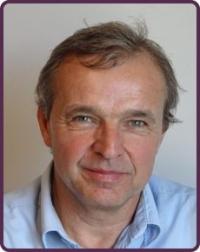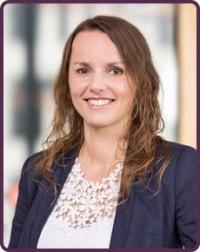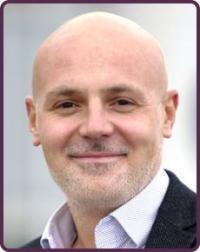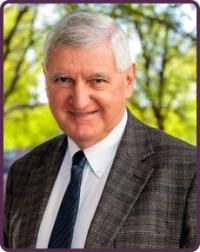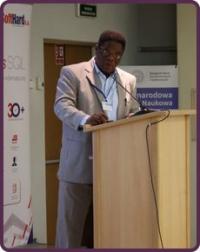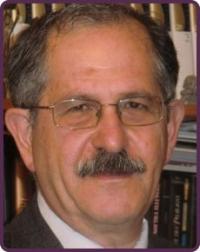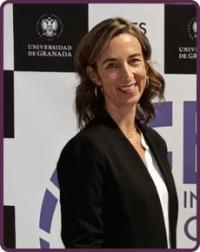Home » PhD Students » Education »
Visiting Professors oraz Visiting Lecturers
The Doctoral School offers a unique opportunity to take part in classes led by academic experts – professors and lecturers from all over the world. As part of the “Visiting Professors” and “Visiting Lecturers” programs, PhD students, thanks to unique classes, have the opportunity to enrich their individual course of education and broaden their knowledge horizons.
Decision No. 339/2023 of the Rector of the Warsaw University of Technology, dated December 15, 2023, on the announcement of the “visiting professors” program as part of the implementation of the “Excellence Initiative - research university” program at the Warsaw University of Technology.
Decision No. 340/2023 of the Rector of the Warsaw University of Technology, dated December 15, 2023, on the announcement of the “visiting lecturers” program as part of the implementation of the “Excellence Initiative - research university” program at the Warsaw University of Technology.
We encourage you to follow the news, because the offer of these classes is varied and updated on an ongoing basis. Details about the subjects, including topics, dates, etc., can be found below in the courses' cards or in the Doctoral School’s courses tab.
Rules of cooperation
The Visiting Lecturers and Visiting Professors programs are based on close cooperation between the Doctoral School, the Applicant and the Visitor. Applications are accepted and verified by the Head of doctoral school, dr. hab. inż. Aneta Pobudkowska-Mirecka, prof. uczelni (ksztalcenie.sd@pw.edu.pl). After accepting the proposal for classes, the Doctoral School presents the details of the operation of the programs. First of all, they concern the following division of responsibilities:
- Doctoral School – is responsible for providing all necessary information and presenting organizational and administrative issues concerning the agreement with the Visitor, remuneration, reimbursement of travel and accommodation costs.
- The Applicant – is responsible for assisting the Visitor during the implementation of stationary or online classes and the organization of stay and travel. The most important aspect is the organization and promotion of classes: ensuring dates, place and participants.
- The Visitor – is responsible for conducting classes in accordance with the agreement. The Visitor must also pay and organize travel and accommodation on their own, the costs of which will be reimbursed by the Doctoral School after presenting the required documents (invoices/bills and payment confirmations).
The person responsible for administrative support at the Doctoral School is Michał Morski (Michal.Morski@pw.edu.pl).
ㅤ
Our guests ,,Visiting Professors" and ,,Visiting Lecturers"
|
|
Visiting Professor: Prof. Andriy Annenkov Course offered: BIM Fundamentals for Engineers (4606-VP-ES-00030) Semester: 2025Z Dates: 10.2025 – 11.2025 Coordinator of the course: dr hab. inż. Nataliya Kablak |
| Annenkov Andriy graduated from the Donbas State Academy of Civil Engineering and Architecture in 1997 with a degree in Civil Engineering. After graduation, he continued his academic career at the Department of Engineering Geodesy, first as an assistant and later as an associate professor. In 1998, he entered postgraduate studies, focusing his research on the deformation of high-rise buildings, particularly those used in energy facilities such as nuclear power plants, hydroelectric power plants, towers, and chimneys. His candidate dissertation presented a comprehensive methodology for studying deformations of high-rise structures under both testing and operational conditions, taking into account external factors such as temperature, wind, and ice. This approach enabled accurate and timely diagnostics, as well as the development of predictive methods for structural deformations during construction and operation. In 2003, he defended his candidate thesis and immediately began work on his doctoral dissertation. Building on his earlier scientific achievements, his doctoral research addressed the global challenge of structural deformations caused by external factors. Annenkov’s scientific excellence was widely recognized: in 2008, he was awarded Best Young Scientist of the Year. In 2013, he received an international scientific grant and completed an internship at the Technical University in Italy. Upon his return to Ukraine, he actively applied the knowledge and practices acquired in Europe to improve the Ukrainian education system while continuing his doctoral research. Since 2015, Annenkov has been affiliated with the Kyiv National University of Civil Engineering and Architecture (KNUCA). In 2021, he successfully defended his doctoral dissertation, and in 2022, he was awarded the academic title of Professor of the Department of Engineering Geodesy. That same year, he was elected Academician of the Academy of Technical Sciences of Ukraine. Since 2023, he has also served as Scientific Secretary of the Specialized Academic Council for the defense of doctoral dissertations. Alongside his academic career, Annenkov continuously enhances his professional qualifications, holding certificates as a Technical Supervision Engineer, Leading Construction Expert, Chief Design Engineer, and Energy Efficiency Specialist. He has contributed to the scientific support and design of numerous large-scale projects in Ukraine, including metallurgical plants in Mariupol, Donetsk, Zaporizhia, Kryvyi Rih, and Dnipro, as well as major facilities such as the Donbas Arena, Lviv Arena, and Donetsk Airport. During the armed aggression of the Russian Federation, he played an active role in monitoring and restoring damaged buildings and structures using BIM technologies. As a supervisor and mentor, Annenkov has guided many graduate students, resulting in the development and implementation of 15 innovative solutions across various enterprises. He is the author of more than 100 scientific, educational, and methodological publications, an expert of the National Agency for Quality Assurance in Higher Education, a member of the Academic Council D. 26.056.09 at KNUCA, and a member of editorial boards for two professional journals (Category B). According to Google Scholar, his current Hirsch index (h-index) is 8. His educational, scientific, and organizational contributions are highly valued by colleagues and students alike. He actively promotes research among students, organizing scientific competitions, Olympiads, and conferences at both national and international levels. Professor Annenkov is characterized by strong organizational skills, determination, professionalism, erudition, principledness, and, at the same time, remarkable modesty — qualities that inspire students and young researchers. Outside of academia, he enjoys traveling, hiking, water tourism, and performing as a bass guitarist in a rock band. |
|
|
|
Visiting Professor: Prof. Peter Reiss Course offered: Organic and inorganic semiconductors for optoelectronics and energy conversion (4606-VP-ES-00027) Semester: 2025Z Dates: 15.10.2025-15.12.2025 Coordinator of the course: prof. dr hab. inż. Halina Szatyłowicz |
| Peter Reiss is a Research Director at the fundamental research IRIG of CEA Grenoble and Deputy Head of the SyMMES laboratory, which focuses on molecular systems and nanomaterials for energy and health. His current research activities focus on colloidal semiconductor quantum dots, metal halide perovskite nanocrystals and silicon nanowires, in particular their synthesis, surface functionalization, integration into optoelectronic devices, use in energy conversion and bio-detection. The most exciting facets in his work are the supervision of young researchers and the discovery of novel nanomaterials, the investigation of their properties and the understanding of the chemistry and physics behind them. On a more personal note, Peter Reiss is a mountain enthousiast and strongly concerned by environmental pollution and climate change. |
|
|
|
Visiting Professor: Prof. Abhay Sharma Course offered: Workflow and computer-based automation (4606-VP-ES-00031) Semester: 2025Z Dates: 15.10.2025-15.12.2025 Coordinator of the course: dr hab. inż. Aldona Kluczek, prof. uczelni |
| Abhay Sharma holds a PhD from Kings College, London. He began his career at FujiFilm, UK and has taught at the University of Westminster, London and in the USA at Western Michigan University. Dr Sharma is currently a professor in the School of Graphic Communications Management at Toronto Metropolitan University. He has authored a textbook - Understanding Color Management, Wiley, A.Sharma, Wiley, 2018 and is working on a new book in the area of expanded color gamut printing. | |
|
|
Visiting Professor: Prof. Igor Tsukerman Course offered: Simulation of Nanoscale and Molecular-Scale Systems (4606-VP-ES-00029) Semester: 2025Z Dates: 15.10.2025-15.12.2025 Coordinator of the course: dr inż. Bartosz Janaszek |
| Igor Tsukerman is Professor Emeritus of Electrical and Computer Engineering at the University of Akron, Ohio, USA, where he has been a faculty member since 1995. His research focuses on the computer simulation of nanoscale systems, applied electromagnetics and photonics. He has taught a variety of undergraduate and graduate courses (Circuits, Electromagnetic Fields, Programming for Engineers, Signals & Systems, Digital Signal Processing, Random Signal Analysis, Simulation of Nanoscale Systems, and others). Tsukerman has over 200 refereed publications. He has authored the monograph Computational Methods for Nanoscale Applications: Particles, Plasmons and Waves [Springer 2008, 2020 and 2026 (to appear)], co-edited another book, Plasmonics and Plasmonic Metamaterials (World Scientific 2011), and acted as Editor-in-Chief of a five-volume reference set on electromagnetic analysis and simulation (World Scientific, 2020). Before coming to the University of Akron, Tsukerman was a researcher at the Department of Electrical & Computer Engineering, the University of Toronto (1990–1995). His academic degrees are from St. Petersburg Polytechnic in Russia: a combined BSc/MSc degree with honors in Control Systems (1982) and a PhD in Electrical Engineering (1988). |
|
|
|
Visiting Professor: Prof. Marina Valentukeviciene Course offered: Ecological Design (4606-VP-ES-00028) Semester: 2025Z Dates: 15.10.2025-15.12.2025 Coordinator of the course: dr hab. inż. Marlena Piekut, prof. uczelni |
| Marina Valentukeviciene has 26 years of experience in various activities of novel design and engineering. Specifically in Eco-design development and implementation including analyses for market introduction; high-tech innovation distribution systems, as well as equipment layout for various types of industrial facilities. Consultant and/ or evaluator interface for installation of novel technological devices, innovative Eco-products, energy control monitoring systems (A++, Zero-Carbon etc.). Fields of study include Hydrology, Gaia Hypothesis, Hydrogeology, Ecology, Environmental Chemistry. |
|
ㅤ
Visitors that worked with us
|
|
Visting Professor: Prof. Jaromir Riha 1st course offered: Flood as threat to urbanisation (4606-VP-ES-00016) 2nd course offered: Safety of hydrualic structures (4606-VP-ES-00019) Semester: 2025L Dates: 04.2025 - 06.2025 Coordinator of the courses: Dr hab. inż. Agnieszka Dąbska |
| Professor Jaromir Riha is an author or co-author of: more than 70 professional and scientific papers in journals, 44 indexed in Scopus (h index = 12), 38 in WOS (h index = 10); 26 monographs, textbooks and guidelines; more than 200 conference papers and contributions. He is an author or co-author of: more than 150 research (basic and applied) reports; about 60 technical studies and designs; more than 600 expert assessments; 51 forensic judgements. He belongs to several memberships, including: Internation Association for Hydro-Environment Engineering and Resarch (IAHR), International Committee on Large Dams (ICOLD), Chech Committee on Large Dams (ICOLD). He is teaching since 1987 resulting in more than 60 diploma graduates in BSc and MSc degrees and was a supervisor of 12 finished PhD students. |
|
|
|
ㅤ Visiting Professor: Prof. Agnieszka Nowak-Król Course offered: Functional Dyes in Modern Chemistry and Technology (4606-VP-ES-00015) Semester: 2025L Dates: 03.2025 Coordinator of the course: Prof. dr hab. inż. Agnieszka Adamczyk-Woźniak |
| Agnieszka Nowak-Król graduated with honors from the Rzeszów University of Technology in Poland, where she worked with Dr. Grażyna Groszek on the synthesis of bioactive compounds. For her master’s thesis, she was awarded the distinction for Janina Janikowa Award of the Polish Chemical Society for the best MSc thesis in chemistry in Poland in 2008. She earned her doctorate at the Polish Academy of Sciences in Warsaw in 2013 with Prof. Daniel Gryko. Her research focused on the design and synthesis of porphyrinoids (porphyrins and corroles) with large two-photon absorption cross-section and appropriate secondary properties, such as liquidity at room temperature or liquid crystallinity. During her PhD thesis, she was the PI of two grants, one funded by the Foundation for Polish Science (Ventures Programme) and another one by the National Science Center. She then continued her career as an Alexander von Humboldt Postdoctoral Fellow and a subgroup leader with Prof. Frank Würthner at the Institute of Organic Chemistry of the University of Würzburg in Germany. In the Würthner group, she explored the chemistry and properties of perylene bisimide dyes and acceptor-donor-acceptor materials for organic electronics and photovoltaics, as well as fundamental processes in covalently linked and supramolecular dye architectures. In 2016, she started her independent career as a group leader at the Center for Nanosystems Chemistry in Würzburg. In 2019, she received the prestigious Emmy-Noether grant (€1.87 million) from the German Research Foundation to establish her independent research group. In 2019, she received a call for a tenure-track position from the University of Bonn, which she declined, and in 2020, she accepted a tenure-track junior professor position at the Institute of Inorganic Chemistry and the Institute for Sustainable Chemistry & Catalysis with Boron of the University of Würzburg. She was promoted to professor in 2024. Agnieszka is the recipient of several awards and honors, including the Arnold Sommerfeld Prize of the Bavarian Academy of Sciences and Humanities, the Hector Research Career Development Award of the Hector Fellow Academy, the Thieme Chemistry Journals Award, the Bürgenstock JSP Fellowship of the Swiss Chemical Society, the Wojciech Swietoslawski Award, and the Zonta Award. She is a member of the Societas Humboldtiana Polonorum, Soltech, the Polish Chemical Society, and the German Chemical Society, and a member of the Early Career Advisory Board of Organic Chemistry Frontiers. Her research lies at the interface of organic, inorganic and materials chemistry. Her current activities focus on the development of helically chiral π-conjugated organoboron compounds, boron-containing polycyclic aromatic hydrocarbons, photoswitches, helicenes containing other main group elements and their applications in organic electronics and bioimaging. | |
|
|
ㅤ Visiting Professor: Prof. Serhii Larkov Course offered: Complex mathematical modeling of the guided missiles flight dynamics (4606-VP-ES-00026) Semester: 2025L Dates: 12.03.2025 - 12.06.2025 Coordinator of the course: dr hab. inż. Robert Głębocki, prof. uczelni |
|
Professor Serhii Larkov was born in Baikonur and spent his childhood with rockets and cosmonauts. He studied the rocket science in Kharkiv Aviation Institute (1987-1993) and worked in aerospace enterprises: Scientific Research Institute of Radio Engineering Measurements and SE Kommunar. He took part in the development, testing and manufacture of the control system units for the Soyuz, Proton and Zenith launch vehicles in all positions - from design engineer to chief technologist (1993-2011). Also he works on prospective researches in guided missile development in Kiev Design Bureau Luch (2012-2016), as a head of the department of scientific research in State Space Agency of Ukraine (till 2022) he was involved in the management of the launch vehicles and satellites projects. Now he a senior lecturer in Igor Sikorsky Kyiv Polytechnic Institute and took part in the development and testing of the university nanosats. Serhii Larkov got his PhD in 2005 in National Aerospace University on problems of the complex mathematical modeling of the working processes in air- breathing engines. His scientific interests are flight dynamics, aero- and gas dynamic processes to develop the complex mathematical models of the flying vehicles to simulate its behavior in various environments. As volunteer he involved in Ukrainian projects for the UAV development, anti-drone defense, external and impact ballistics. He published about 30 papers in referenced journals, co-author in 3 books and about ten printed conference proceedings. |
|
|
|
ㅤ Visiting Professor: Prof. Przemysław Musialski 1 st course offered: Advanced Geometry for Computer Science (4606-VP-ES-00023) 2nd course offered: Modern AI in Visual Computing (4606-VP-ES-00022) Semester: 2025L Dates: Will be provided soon Coordinator of the courses: Dr inż. Joanna Porter-Sobieraj |
| Przemyslaw Musialski is an Associate Professor of Computer Science at the New Jersey Institute of Technology, NJ, USA. His research in computer graphics focuses on geometric modeling, geometry processing, and digital fabrication combined with modern machine learning to create algorithmic solutions for digital content generation. Before joining NJIT, he was an Assistant Professor at the Institute of Discrete Mathematics and Geometry at Vienna University of Technology (TU Wien) in Austria, where he also led the Computational Fabrication group at the Center for Geometry and Computational Design (GCD). Prior to that, he was a researcher at the VRVis Research Center for Virtual Reality and Visualization in Vienna, a postdoctoral scholar at Arizona State University, a postdoctoral associate at Computer Graphics at TU Wien, and a visiting research scientist at the Visual Computing Center at King Abdullah University of Science and Technology (KAUST). He earned his MSc in Media Systems Science in 2007 from Bauhaus University Weimar and his PhD in Computer Science in 2010 from Vienna University of Technology (TU Wien). |
|
| ㅤ Visiting Professor: dr inż. Grzegorz Orzechowski, Associate Professor Course offered: Multibody Dynamics with Euler Parameters and Machine Learning (4606-VP-ES-00024) Semester: 2025L Dates: 05.05.2025 - 11.06.2025 Coordinator of the course: dr hab. inż. Marek Wojtyra |
|
| Grzegorz Orzechowski is an accomplished Associate Professor (Tenure Track) in Sustainable Mechatronics at the Department of Mechanical Engineering, Lappeenranta-Lahti University of Technology LUT, Lahti, Finland. With a strong academic background, Grzegorz holds a Ph.D. in Automation and Robotics from the Faculty of Power and Aeronautical Engineering, Warsaw University of Technology, Poland, and a Title of Docent in Artificial Intelligence based on Computational Dynamics from the School of Energy Systems, Lappeenranta-Lahti University of Technology LUT, Finland. Throughout his career, Grzegorz has held various significant positions, including Post-doctoral Researcher and Senior Developer at Mevea Oy. Grzegorz has also served as an Assistant Professor at the Warsaw University of Technology and has had the opportunity to work as a Visiting Researcher at the Lappeenranta University of Technology and as a Visiting Scholar at the University of Illinois at Chicago. Grzegorz's research interests lie in the fields of artificial intelligence, computational dynamics, and sustainable mechatronics. His work has contributed to advancements in these areas, and he has been actively involved in various research projects and collaborations. Grzegorz's achievements and contributions to the field have been recognized through his academic appointments and research positions. |
|
|
|
Visiting Professor: Prof. Andrzej S. Nowakㅤㅤ Course offered: Reliability of Structures Semester: 2024Z Dates: 16.10.2024 – 20.12.2024 Course card: Reliability of Structures (4606-VP-ES-00005) |
| Prof. Andrzej S. Nowak works at Auburn University in the USA at the Department of Civil and Environmental Engineering, after 25 years at the University of Michigan and 8 years at the University of Nebraska. He received his MS and Ph.D. from the Warsaw University of Technology in Poland.His area of expertise is structural reliability and bridge engineering, and major research accomplishments include the development of a reliability-based calibration procedure for calculation of load and resistance factors. The procedure was successfully applied on calibration of AASHTO LRFD design code for bridges, ACI 318 Code for Concrete Buildings, Canadian Highway Bridge Design Code, and British Standard BS-5400. He made important contributions in the area of bridge diagnostics and evaluation, including analytical load models used for prediction of extreme load events for bridges and buildings and the development of efficient experimental procedures for weigh-in-motion measurement of truck loads, dynamic loads on bridges and fatigue load spectra. In the area of materials, Prof. Nowak has developed a design guide for self-consolidating concrete (SCC), including field applications. Prof. Nowak has authored over 450 technical publications, and chaired a number of committees associated with professional organizations. | |
| ㅤ |
ㅤ Visiting Professor: Prof. Kassim Adekunle Akanniㅤ 1st Course offered: Entrepreneurship Studies 2nd Course offered: Marketing Management Semester: 2024Z Dates: 10.2024 – 12.2024 Course card: Entrepreneurship Studies (4606-VP-ES-00004) Course card: Marketing Management (4606-VP-ES-00003) |
| Professor Akanni, Kassim Adekunle is a research fellow at Olabisi Onabanjo University, Nigeria. His research and teaching activities include agricultural economics, marketing, consumer research, development economics and international trade. Author of over 80 articles in reputable academic journals and several monographs. Public commentator on contemporary economic and social issues in Nigeria. Winner of many international grants and research awards. Member of many professional organizations such as the Nigerian Association of Agricultural Economists (NAAE), Business and Economics Society International (B& ESI) in the USA, International Association for the Study of Forced Migration in Canada. Consultant to national and international organizations such as the Ministry of Agriculture and Natural Resources of the Lagos State Government in Nigeria, Department for International Development (DFID) in the UK, Alliance for Global Integration in Malaysia. | |
|
|
Visiting Professor: Prof. Michel Cassirㅤ
Course offered: Key issues in Hydrogen & CO2 valorisation: Semester: 2024Z Dates: 21.10.2024 – 25.10.2024
Course card: Key issues in Hydrogen & CO2 valorisation: |
| Michel Cassir is Emeritus Professor at Chimie ParisTech, PSL-University. Former leader of the research team “Interfaces, Electrochemistry, Energy” (I2E). He obtained his Ph.D. and habilitation at the University of Paris VI, France. He was a Professor 9 years at the National University of Mexico (UNAM). He was Director of the Laboratory “Electrochemistry, Chemistry of Interfaces & Modeling for Energy”. His expertise covers electrochemistry, molten salts, solid oxides, separation techniques, thin layers and nanotechnology. His main activities are dedicated to high temperature fuel cells & electrolysers (MCFC, SOFC, PCFC, hybrid cells), batteries, CO2 capture, thin layers, catalysis and sensors. He gave more than 300 conferences in scientific events (>100 invited conferences) and authored 295 scientific peer-reviewed publications, proceedings & book chapters. Director of 30 Ph.D. thesis and of an important number of academic & industrial collaborations.Professor Michel Cassir will share his scientific and professional experience, through a serial of courses/conferences, as Invited Professor at the Warsaw University of Technology, Faculty of Power and Aeronautical Engineering. He will address a large panel of topics, from the understanding of electrochemistry and electrochemical devices to the insight into hydrogen economy and renewable energy sources and, finally, a view on new CO2 capture technologies. He will also give a critical approach on sustainable development. | |
| ㅤ
|
ㅤ Visiting Professor: Prof. María José Martínez-Echevarría Romeroㅤ Course offered: New-generation concretes Semester: 2024Z Dates: 10.2024 - 11.2024 Course card: New-generation concretes (4606-VL-ES-00012) |
| Professor at the University of Granada since 2008, in the Department of Civil Engineering Construction and Engineering Projects. I teach Civil Engineering Construction and Material Science in Civil Engineering Degree as well as Material Science and Concrete in Science and Technology Architectural Heritage Master and Advanced Concretes in Civil Engineering Master at the same University. Civil Engineering, PhD since 2012. My research is focused on construction materials and the main research lines among others are: Reuse of waste in concrete; New technologies in self-compacting concrete; Study of corrosion of reinforcements in concrete; Revaluation of technological nutrients as building materials; Sustainable pavements and recycled asphalt mixes. I accumulate a series of university management activities such as the direction of the Departmental Section of Construction Engineering, the Coordination of External Practices of the School, the participation as a member of the Master Academic Committee and the Internal Guarantee of the Quality and since 2021 I am deputy director of the Civil Engineering School at the University of Granada. | |
| ㅤ
|
Visiting Professor: Prof. Reinhard Millerㅤ Course offered: Drops and Bubbles – an introduction to colloids and interface science Semester: 2024Z Dates: 11.2024 - 12.2024 Course card: Drops and Bubbles – an introduction to colloids and interface scienceurers (4606-VL-ES-00006) |
| Reinhard Miller studied Mathematics at University of Rostock (1969-1973) and Colloid Chemistry at the Technical University Dresden (1977-1978), Germany. He got his PhD in 1978 and Habilitation in 1988, both at the Academy of Sciences in Berlin, Germany, on problems of adsorption kinetics and dilational visco-elasticity of surfactant adsorption layers. From 1992 until 2015 he worked as Group-Leader at the Max Planck Institute for Colloids and Interfaces in Potsdam/Golm in the field of thermodynamics, kinetics and mechanics of surfactant and protein adsorption layers at liquid-fluid interfaces. 2015-2019 he was Senior Scientist at the same Max Planck Institute for Colloids and Interface, and since 2020 Dr. Miller is Associate Senior Scientist in the Institute for Soft Matter Physics at the Technical University Darmstadt. His scientific interests are dynamics and mechanics of liquid interfaces, thermodynamics of adsorption of surfactants, proteins, polymers, particles and their mixtures, interfacial interactions and 2D shear and dilational rheology, formation and stability of foams and emulsions. He published about 700 papers in referenced journals (Web of Science), about 50 chapters in books, and about 50 contributions to printed conference proceedings. | |





